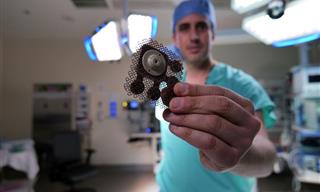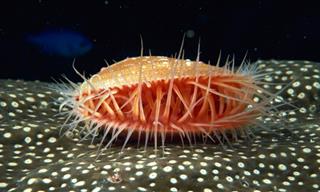There may be a breakthrough in the fight against rhabdomyosarcoma, a particularly aggressive type of childhood cancer that begins in muscle tissue. Scientists have achieved a remarkable feat by transforming these cancer cells into healthy muscle cells. This achievement could be a major milestone in the development of new treatments for this disease, as well as providing valuable information for treating other human cancers.
"The cells literally turn into muscle," says molecular biologist Christopher Vakoc of Cold Spring Harbor Laboratory.
Related: Lung Cancer Pill Cuts Risk of Death by 50%
"The tumor loses all cancer attributes. They're switching from a cell that just wants to make more of itself to cells devoted to contraction. Because all its energy and resources are now devoted to contraction, it can't go back to this multiplying state."

Rhabdomyosarcoma cells that transformed into muscle cells. (Image credit: Vakoc lab/Cold Spring Harbor Laboratory)
Understanding cancer can be a little complicated. Cancer varies depending on the cell it originates from, unlike the image of a singular, monolithic entity.
There is a high mortality rate for people with rhabdomyosarcoma; the survival rate is 50-70% for people at intermediate risk. Differentiation therapy is one remedy that has proven promise. It came about when researchers discovered that leukemia cells are immature, much like undifferentiated stem cells that haven't fully matured into a particular cell type. These cells are coerced by differentiation therapy to carry on with their development and differentiate into particular mature cell types.
Earlier, Vakoc and his team of researchers accomplished an incredible feat. They managed to undo the cancerous mutation present in cells linked to Ewing sarcoma, a severe childhood cancer primarily affecting bones. Their audacious objective was to replicate this accomplishment for rhabdomyosarcoma, even though experts believed that using differentiation therapy for this cancer type might take decades to become feasible.
The research team used advanced genetic screening methodology to achieve this goal. They wanted to find genes that could turn rhabdomyosarcoma cells into full-fledged muscle cells. Their solution was encoded in a protein known as Nuclear transcription factor Y (NF-Y).
Cells with rhabdomyosarcoma create a distinct protein known as PAX3-FOXO1, that plays a critical role in the spreading of cancer. Essentially, the tumor is strongly reliant on this protein. Surprisingly, the researchers discovered that inhibiting NF-Y neutralizes PAX3-FOXO1. This halt nudges the cells forward in their development, culminating in their metamorphosis into mature muscle cells free of malignant remnants.
The discovery has profound implications, as it could accelerate the development of differentiation therapies for rhabdomyosarcoma.

A diagram illustrating the transformation from rhabdomyosarcoma to muscle cells. (Image credit: Vakoc lab/Cold Spring Harbor Laboratory)
Moreover, the research team has successfully tested and validated their method on two different types of sarcoma. They believe that their approach can be customized for treating other forms of sarcoma and various types of cancer. This methodology equips scientists with the necessary tools to determine how to induce differentiation in cancer cells.
Related: The BIGGEST Cancer Myths Explained
"Every successful medicine has its origin story," Vakoc says. "And research like this is the soil from which new drugs are born."
The research has been published in the Proceedings of the National Academy of Sciences.
 Go to BabaMail
Go to BabaMail


























